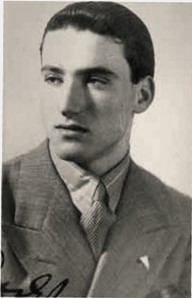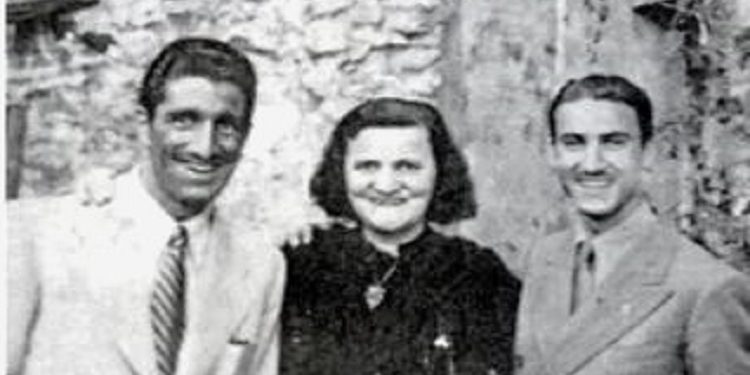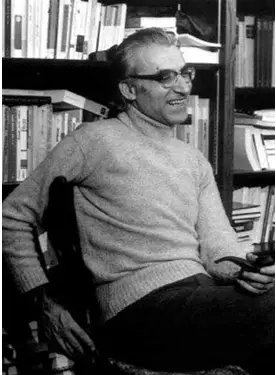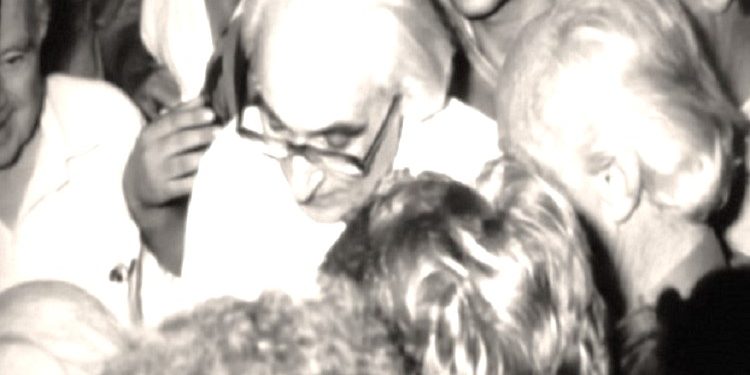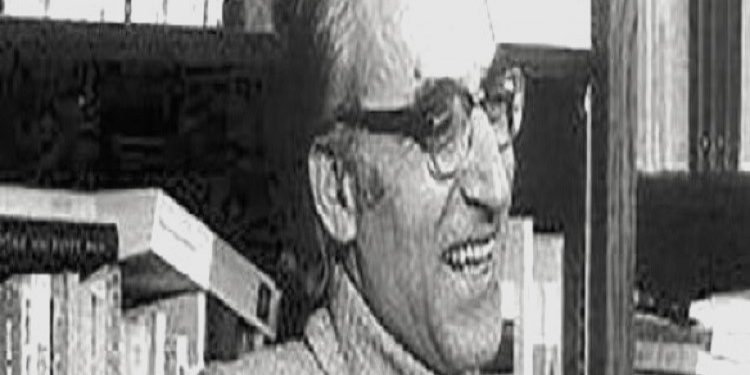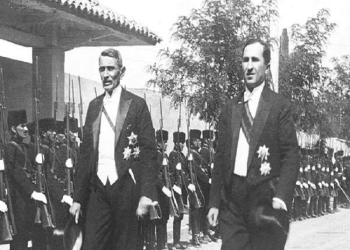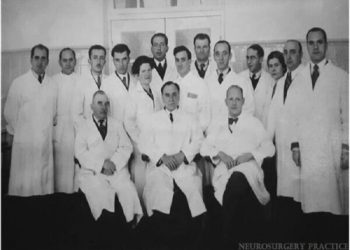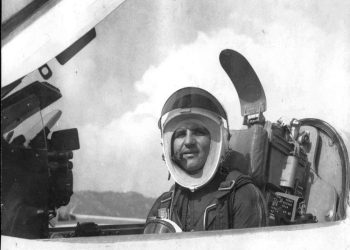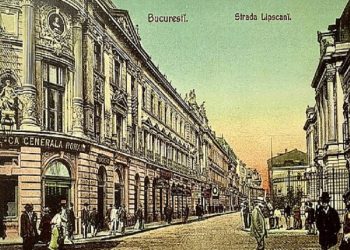By Indrit Qehajaj
The second part
-Arshi Pipa, the profile of an unwanted researcher –
Memorie.al / Among the most basic features of the totalitarian model, especially the Albanian one, remain harsh violence and the elimination of individuals and groups that are considered opponents of the regime. Such was the case of Professor Arshi Pipa who, although he had no proven criminal responsibility, was sentenced twice, staying for about 11 years in prisons and labor camps. The years 1945-1954, which are the time limits of this presentation, coincide precisely with the years of imprisonment and endless suffering of Pippa and his family. Chronologically, we will try to shed light on this important character of Albanian culture, trying to better understand the man and the researcher, the reasons for his imprisonment and for his face with the punishment.
Continues from the previous issue
The formulation of the accusation against Arshi Pipa continues even further, accusing him that he; “had run magazines with fascist ideology to deceive the people and to mask the occupation of fascism in our country. After the liberation of Albania, being a professor at the High School of Tirana, he was associated with the Social-Democrat group and carried out extensive activities in favor of this organization. He continues his activity with students and disaffected elements, preaching on Western democracies, to show that there was no democratic freedom in our country and he considered the power as a terrorist power”.
According to the indictment, “his activity was fully proven by the attributions made by Sulo Konjari in the Tirana court, Selim Kokalari and Ramazan Tabaku, by his minutes before the investigation and by the entire content of the file. To deepen the accusation against Arshi Pipa even more, it is written that: “The defendant held regular meetings with Preng Kačinar, Stavro Frashër, Isa Podgorica, Simon Deda, Hysen Ballhysa, Sabri Tuci and Rifat Dervish, and that these meetings, were made at the City High School”.
To support the accusation, the prosecution relied on the testimony before the trial, of the convict Sulo Konjari, who stated that: “Arshi Pipa was part of the group of social democrats and was the most active element of this group, with Isa Podgorica, Hysen Bellhysa and Skënder Çela”. The same statements were made by the two convicts, Salim Kokalari and Skëndër Çela.
Arshi Pipa maintained a dignified attitude and tried to defend himself, as he did not accept these accusations. In fact, he said that he was not even aware of such an organization. He stated that the statements of Salim Kokalari, Sulo Konjar and Ramazan Tabaku are untrue and that he had not been part of any organization. He continues even further, when he says that; “since my dissatisfaction with the popular government, I have expressed them and they are known, it has made those who have declared against me, blame me as well, as they may have blamed others”!
He had no friendship with Sulo Konjar and Salim Kokalari, nor did he know them. “Sulo Konjari,” he said, “can say many things, but I ask to be confronted.” While with Hysen Podgorica, there was acquaintance, due to the fact that both were professors. In his statements, Arshi Pipa stated that; He had contacts and conversations with Hysen Podgorica. He had talked about literary matters and not about political matters, because there was no time for the latter. He only had time for studies!
While he knew Hysen Bellhysa, but had no friendship contacts. He had met her several times, but had never visited her at home. As for Skënder Çela, he did not know him, but he said that the latter might have heard his name, because he was a professor. Regarding Hysen Bellhysa’s statement, he mentions Arshi Pipa, but states that he knew him simply as a person and that it was not true that he had ever talked to him about the Social-Democratic Party.
In another accusation it was said that; “The defendant, Arshi Pipa, gathered the students in his house, to make propaganda against the people’s power, he spoke to them about the Social-Democratic Party and against the leaders”. The accusation was based on the statements of several students, such as Alfred Kazanxhiu, Thomas Goxhaj and Sotiraq Manushi, who said that Arshi Pipa spoke to them about the principles of the Social Democratic Party. In the statement of Sotiraq Manushi it was said that; “Arshi Pipa also spoke badly about the popular government, saying that the Albanian government is oppressive, that the reforms they made are destroying the country and impoverishing the entire people. Also, those who have been placed in charge are incompetent people”.
Student Thomas Goxhaj says that; Arshi Pipa also spoke about the Soviet Union, saying that it is the country where human rights are violated the most. The statement of Thomas Goxhaj is the same as that of Sotiraq Manushi, because he also talks about the poverty that has gripped the people, the incompetent leaders, etc. Regarding the statements of the students, Arshi Pipa says: “I gave them private lessons and they did not understand my words well. They didn’t have any sympathy for me, but I was teaching so they could pay me, while they were interested in learning.”
After the court hearings, where many people were interrogated, based on all these testimonies, maximum punishment was demanded for Arshi Pipa, as a man who had been part of the social-democratic group and who had propagated against the government. Thus, on December 20, 1947, Arshi Pipa would be sentenced anew by the Court, with 20 years in prison and for him the ordeal of suffering and torture would begin again.
In addition to the bad conditions of the prison, he was also tormented by his illness, for which he stated that he was suffering from inflation in his lungs. This harsh and unfair process towards Pippa was a clear indication of the typical Stalinist violence in the judicial system, an unprincipled justice, as it was based on submission through elimination, torture and psychological violence, to the most exposed opponents.
Life in the prisons of the dictatorship
In the first trial, he was sentenced to two years in prison and was initially sent to Durrës prison. After his stay in Durrës prison and his second sentence, he, together with a group of prisoners, was sent to the Vloçishti camp in July 1948. Most of the prisoners there had gone three months before him, as writes Arshiu; you couldn’t recognize them, how they were made from hunger and great hardships. In the camp of Vloçishti, Arshiu fell ill and stayed for some time in the hospital of Korça.
At that time in the camp of Vloçishti, there were about 1300-1600 people, according to the periods they gathered, and they slept in three barracks, covered with raincoats, which were punctured in many places. The prisoners slept on a three-board bed, and as soon as you entered the barracks, you could smell the stench. They had no opportunity to wash and clean themselves. Water could only be obtained from a few wells. As for drinking water, there was very little at the entrance to the camp. In the barracks, they were all together, political convicts and “regulars”.
There were many cases of theft. Often these ordinaries were encouraged by the guards to steal political convicts or other intellectuals. In case you complained, the fault did not rest with the thieves, but with the person who complained. The guards had a mentality, which was: “Politicians are representatives of the capitalist-bourgeois class, while ordinary people are proletarians, and as such, they have the right to loot first”. Food in the camp was very scarce and people were hungry. There were cases when the prisoners went to work at long distances from the camp and on the way; they saw plots of land planted with corn or beets.
They were so hungry that one of them would jump quickly to get something from the crops and would not let go, even though the guards kicked him or hit him on the head. The prison was harsher, for the political prisoners, than for the peasants. Simple peasants were looked down upon less. There were cases when political convicts dressed like ordinary peasants, just to escape violence.
The work that the prisoners did was the opening of large canals, where the length went for kilometers; the width was 10 m. and 3 meters high. When they returned from work, they had a long way to go. Tired and exhausted, they were also tortured by the guards on the way.
Their feet were swollen from hard work, fatigue and bad conditions. The lack of boots, shoes, walking barefoot and hard work caused many prisoners to die prematurely, in inhumane conditions. For the Vloçishti camp, Arshi Pipa says that; it was like an extermination camp!
In 1949, after the First Congress of the KPSH, the conviction of Koçi Xoxes and the orientation completely towards the Soviet Union, Enver Hoxha made an amnesty, where Arshiu also benefited, because his sentence was reduced to 10 years. He spent the remaining years of his sentence in different prisons. After staying in the Vloçishti camp, Arshiu was admitted to the Durrës prison hospital until January 1950. Later, he was sent to the Gjirokastra prison until June 1952. Then he was transferred to the Tirana prison and admitted to prison hospital again.
After some time, he was sent to Burrel prison, until April 1956, where he will finish his sentence. Arshiu would move from one camp to another and thus could not even escape the infamous Burrell prison. Hundreds of prisoners died in this prison. Some of the diseases, some of the great tortures, from hunger, etc. Among the biggest problems of the prisoners, in the Burrel prison, was the issue of water. During the time that Arshiu stayed in this prison, he says that water was taken from a well, somewhere in the middle of the yard, but that it did not even have a spout.
To make the work even more difficult, the prisoners were not given any means of relief to get the water out. Not even a bucket or rope. Circumstantial means were used to extract the water. To make matters worse, the well water was very polluted and was turning into sickness, for everyone. Many people had died from this polluted water. There were often worms in the water that the prisoners took out. Arshiu had a weak physique and was sick, so getting out of the Burrell camp alive was nothing but luck for him.
Among Pippa’s best works, the ‘Prison Book’, is an authentic document of suffering in the prisons and internment camps of communist Albania, bringing it through poetic verses. This book, as the author himself will say, was written during the period of imprisonment (1946-1956), but it was not written on a notepad or on a clean sheet of paper and without anyone’s fear. The book was physically taken out of prison, written on cigarette papers. It would be rewritten again in cigarette papers, before Arshiu escaped from the homeland, together with his sister, Fehime Pipa.
The sister would sew these sheets through her clothes. After crossing the border, escaping from the Yugoslav authorities, during the period September-November 1957, they would arrive in Sarajevo. During their stay in Sarajevo, they would arrange the pages of the book, written on cigarette paper, and later they would be prepared in Detroit and published in Rome, in 1959.
The “prison book” introduces us to the life of the author himself, his youth, but also brings us the suffering and torture suffered by a group of people, among the most knowledgeable, of Albania at that time. A group of people who had the opportunity to contribute to the development of Albania. It is this group of people who were denied the right to be human.
After leaving prison, on April 26, 1956, Arshiu would stay for some time, to enjoy life beyond the suffering and terror of the internment camps. His sisters and mother would be waiting for him outside. Although it appeared that the suffering was over, this was not true. For ex-prisoners, it was very difficult to find a job. The only jobs that could be assigned to you were the most mundane and physically difficult ones, which for Arshiu, was very difficult. The work he knew how to do best was that of the pen.
After many struggles, he was appointed a teacher in a seven-year school in Shkodër, but this job did not satisfy him. He was used to students of a higher level, dealing with criticism, etc. So Pipa asked to leave the job in education that was offered to him, under the pretext that he was sick.
After the political developments in Albania in 1956, where the path of Stalinism became stronger, Arshiu began to think about escaping. Based mostly on the manuscripts of Fehime Pipa, Arshiu’s sister, collected and published by Uran Kalakulla, in his book, Arshiu decided to escape, together with his sister, Fehime, helped by a villager who owned the house near the border.
He had to swim across the Buna River, where his sister was waiting for him on the other side of the bank. Then they reached the village of Muriqan and managed to cross the border. After crossing the border, they appeared near the Yugoslav post office, where they stayed for some time in the investigator, in Tivar. After they were released, they went to Sarajevo, where Fehime’s fiance was also with his family. But the stay there would not be long and he will leave for Rome, where the goal was America. For going to America, his two cousins would help him, bringing him a guarantee. He will also start learning English there.
After many vicissitudes, he will start climbing the career ladder at the university. What the Albanian state denied him, he found in another country. To begin with, he would teach the subject of philosophy and the philosophy of the Christian religion. Regarding religion, he did not have the proper knowledge. In fact, in a VAT documentary in the 90s, Arshiu states that his knowledge, in terms of fees, was limited, only a few things he remembered from the College of the Jesuits. Arshiu became a Muslim pedagogue, teaching Christian philosophy.
CONCLUSIONS
Arshi Pipa was a rare intellectual and as such, the contribution he gave, but could also give to the country’s education, was worthy. Raised in an education-and-culture-loving family, equipped with a solid and complete education, educated with the basic principles of democracy, he had the necessary potential to be one of the most vocal intellectuals of the time. His involvement in the intellectual life of the capital, from a young age, and his desire to contribute to Albanian culture, are a clear proof of his abilities.
Arshi Pipa was a suigeneris enemy of the dictatorship and as such, was essentially a born anti-fascist. If he did not get involved in the National Liberation Movement, led by the Albanian Communist Party, it happened because he did not like the communist ideology that was attached to the liberation movement.
His imprisonment after the War, along with many other intellectuals, was a great loss for the country. People of such caliber, who did not accept the system that was being installed in Albania, were severely punished, ending up in the notorious camps, where some of them even died. But again there were people like Arshi Pipa who, even though behind bars, did not give up. Each of them tried to fight communism with the best weapon they had.
Arshi Pipa’s best weapon was the pen. He, in complete secrecy, continued to write, not letters, but a complete book, like the ‘Prison Book’. With the ‘Prison Book’, he brought to all of us, not only a literary work, but a documentation of everything that happened in the internment camps of Albania, about the way the country’s intellectual elite was treated, etc.
The case of Professor Arshi Pipa is the typical case of intellectuals who, as Pipa himself says, have shown communism a cold face, provoking them to rage. Many of them lost their lives, or spent it in prisons. Since Albania was a small nation, the story of their disappearance is one of the ugliest aspects of the regime. Memorie.al




